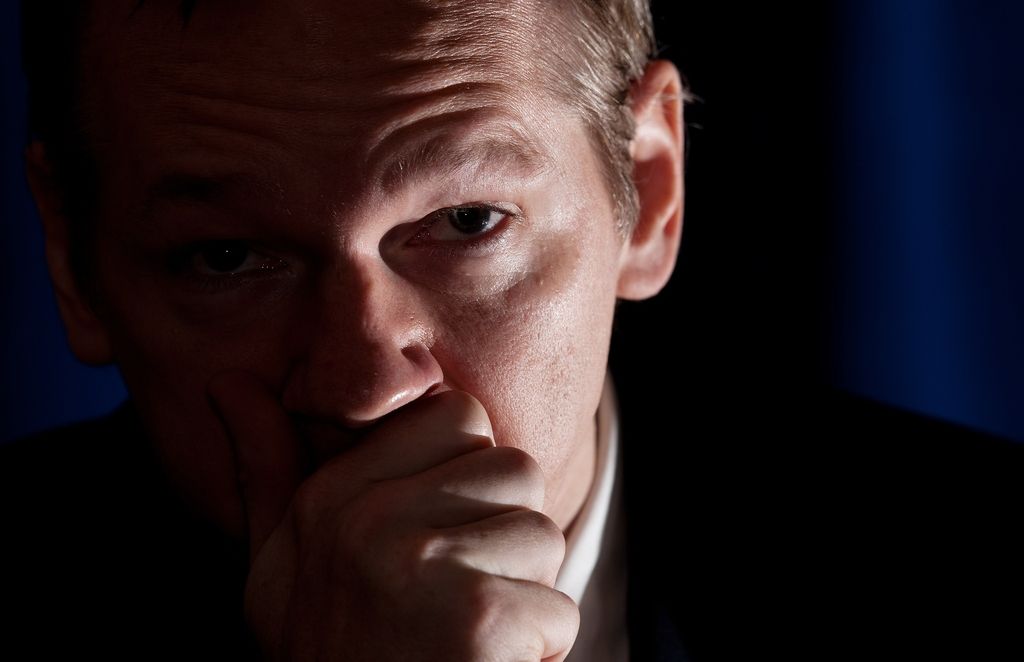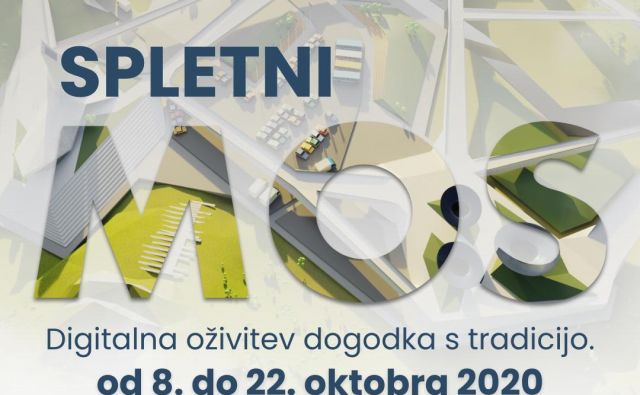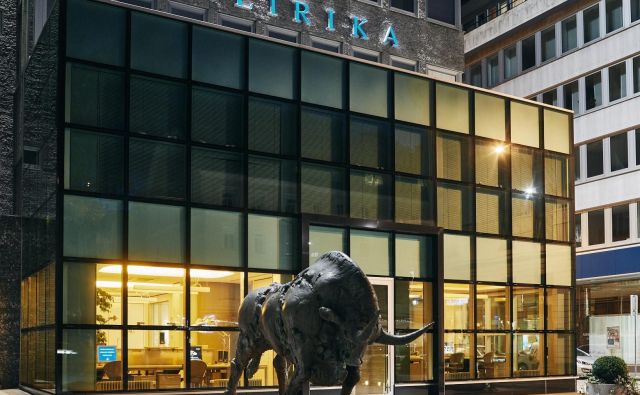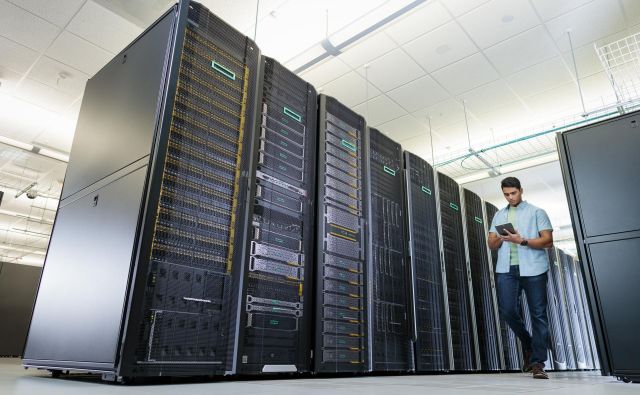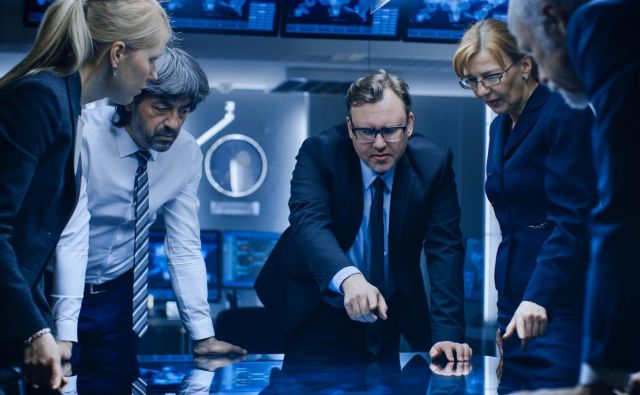»Now, every person in the world has his or her own biographer,« said the Wikileaks founder and its chief editor Julian Assange before we started the interview - this was his ironic comment on today's massive state monitoring of people.
Mr. Assange did a lot to disclose to the wide public how state agencies - of intelligence, defense, and diplomacy - effectively operate. Among other things, Wikileaks has also been instrumental in assuring Edward Snowden an asylum in Russia.
Individuals who delivered documents and data to Wikileaks have suffered a lot - Bradley (Chelsea) Manning will stay in prison for 35 years. Mr. Assange himself has for the last 15 months been confined to a couple of rooms in an upscale London apartment which serves as the Ecuadorian embassy to the United Kingdom.
A dozen policemen are posted day and night around the building to prevent his escape; the apartment is monitored from outside and the flats above and below; Assange cannot step even into the corridor of the building since policemen are also waiting for him there; he is unable to open a bank account, etc.
The United Kingdom thus employs around 50 people just to control Mr. Assange - why are they spending so much money in these times of austerity? Officially, because he refused to go to Sweden where the police wants to question him concerning some rather ridiculous allegations of sexual misconduct, a case that was previously closed, and he is not even formally charged of anything!
In spite of this heavy ordeal, Mr. Assange is not demoralized by the situation. Wikileaks has won some important court cases, and Mr. Assange's own court case in the UK may be reopened by the Supreme Court. He is still fully occupied with Wikileaks and several other engagements connected with it.
His big goal and ideal remains to create an encyclopedia for the 21st century - a website where the wide public would have free access to millions of suppressed documents and data that provide an insight into how state apparatuses which control us effectively function. Or, as he put it in the interview for Delo, he wants to be a »spy for the people«.
I write on cinema as well, so let me begin with recent movies on you Secrets We Steal or The Fifth Estate. One can't get rid of the feeling that their makers try to discredit Wikileaks by discrediting you as a person.
Yes, and The Secrets We Keep they do the same thing to Chelsea Manning - they depict his actions as something that was an emotional, personal response to inner turmoil, to private psychopathology, not as heroic acts risked after a long trial of conscience.
It is interesting that some Hollywood movies on the corruption of our intelligence agencies that do not deal directly with you, like Echelon Conspiracy, Eagle Eye, or the Bourne series, render the massage of Wikileaks' revelations much more adequately than films on you - as if we were allowed to dream our dreams about being totally controlled, but the moment one can prove that these dreams actually touch the truth they have to be watered down or discredited.
That is quite an interesting point. If you take a more abstract look at it, I would say that when you move beyond paranoiac fiction and disclose data about actual powerful groups that control us, the limitations become much more palpable. If you take a more instrumental look at it, we made some enemies with our actions, we embarrassed them, we undermined their authority, and they are trying to re-establish their authority by counterattacks. You should also not forget that, in our activity of disclosing sensitive data, we have some social connections and we have some competitors in the media who - for a series of reasons, from fear of legal reprisals to links to the establishment - often turn against Wikileaks.
For example, Guardian is clearly our competitor for legitimacy in social space - although it was originally one of the five big newspapers with whom we made a deal to publish our documents, it was also responsible for one of the books The Fifth Estate was based on. Another example: In 2010 I fired a volunteer who stole some documents from us and who claimed they were starting a rival publishing business promising disclosures ... Interestingly, they never published anything. Our mutual opponents of different kinds, from the mainstream press to, particularly, parts of establishment (what in China is calleed mandarins), they all came together to try and stop the threat ...
... the threat you pose ...
... to authorities and establishment.
How do you see the actual consequences of your work? At first glance, it appears that only those who made some incriminating data public, Manning and Snowden and you also, being confined to this embassy, suffered real consequences, while everything else stayed untouched.
There is a nasty case concerning our single most popular and known public disclosure, the video tape of an US Army Apache helicopter attacking some civilians and Reuters journalists in Iraq. What is the outcome of it? Manning, who revealed that document, was sentenced to 35 years in prison, while there are no disciplinary actions against the gunner, the pilot, or their superiors - they are still serving in the US military.
Are you getting pessimistic, demoralized by all this?
There have been other cases, ministers losing their jobs, the chief of the Danish military was forced to resign, there were victories in different court cases, there were investigations our revelations triggered, we had an impact on some elections. So there are a number of serious consequences. Our contacts involved in the Arab Spring made a very flattering statement about us. They said that, in the past, when the puppet dictatorships in Arab countries got in serious trouble, US stepped in to keep them in power, but this time, because of our disclosures, US did not dare to intervene directly and, for example, accepted Mubarak's loss of power.
But our most important achievement is a more general one. The agencies whose activities we disclose can only thrive in shadow, they are like creepy and sleazy beetles which start to run around in panic when the stone which was shielding them from the daylight is torn away. This is why our revelations weakened their authority.
Once their acts are rendered public, we no longer really fear them, we all of a sudden see them in their misery and vain arrogance mixed with stupidity. This is why Pentagon publically declared that we must cease with our disclosures, otherwise they will destroy us in one way or another, legal or illegal. Things are now getting very serious: state agencies in the US and UK are now trying to build a legal case against me and my closest collaborators, charging us with espionage and terrorism - intelligence terrorism of disclosing state secrets. You know what awaits you today in you are designated by the authorities as a terrorist!
But for the time being, they have lost, so we have here an example of a small publisher beating the Pentagon, and if a small publisher can beat the Pentagon, than some committed and strong political groups in various countries don't have to be quite as scared of US as they have been before. The US intelligence agencies have a big budget and immense technological resources, but the more we learn about them, the more we see how incompetent they are. They are definitely not real life James Bonds. More a vast number of sickly office workers dreaming about their next holiday.
And this brings me to our basic task, to what Wikileaks really is about. We tried to provide to the wide public a kind of encyclopedia of how big intelligence, diplomatic and defense agencies actually work, so that people all around the world can plan their moves when they are dealing with these institutions. We give to the public a glimpse into the State Department's world view and modus operandi, and this give a chance to smaller countries which don't possess the sophisticated machinery comparable to that of the US.
What is your political position? Do you find democracy and capitalism a fine system which only needs a few corrections like more transparency, or do you think they are in themselves questionable and an alternative is needed. I ask you this because of what Wikileaks revealed: war crimes, corruption in politics and economy etc. Some might interpret this as a sign that the system as a whole is problematic, that it is not a flaw in an otherwise elegantly working system but a flaw inscribed into the very heart of the system.
In my work, I try to abstract from particular ideological and political positions. My basic axiom is that a civilization is only as good as the knowledge it possesses. This is why libraries are the treasures of civilization and the burning of the Alexandria library was a crime against all of humanity, not just a crime against the people of Alexandria. Ideological and political visions and projects all have to rely on available knowledge, and we are trying to widen this foundation on which they build. In a way, we continue the old project of Enlightenment. We stand for what some philosophers call the "public use of reason" - not only against private companies and interests, but also against states and their apparatuses which effectively function as private institutions.
Your program is the program of such a library, of free data and information.
Yes, it's a meta-political program. Instead of following a precise political agenda, we try to open up the space for authentic political engagement. Broadly speaking, there are different types of knowledge. There is knowledge that is well available for - let's say - plumbing. It is important, but there is no need for us to do anything about it because that knowledge already has a way of sustaining itself. There are other sorts of knowledge which are neither sustained nor suppressed, they simply wither away and are gradually forgotten. But then there is knowledge is suppressed, censored, excluded from the public domain, and it includes knowledge about how human institutions actually behave.
Intelligence agencies are experts in suppressing such knowledge - they suppress it because they assume that if it is revealed it will decrease the power of those institutions. Almost every political philosophy at its core is simply a program to describe, create and manage human institutions. But how good can these philosophies be if they don't know how modern institutions actually behave?
So let us say you want to stop injustice, you want a just world - where do you go from there? You focus on those aspects of human knowledge that are suppressed, because suppression is as a rule an instrument of hiding injustice. Or we can proceed in the opposite way: you want to maximize human knowledge, and you soon discover that suppressed knowledge has often to do with injustice, so that if you reveal that knowledge you, as it were, take it out of the game and reduce the total sum of injustice.
Would you ever compromise on that? For example, you get a pile of documents that put Russian politicians into a shameful position. Would you compromise here because Russia is now helping Snowden or would you publish it all the same?
As an organization we do all sorts of things. There are people who possess information and want to disclose that information to history, to the court of public opinion. We work as skilled advocates of those people in presenting the information to that court. They are our clients. We don't represent everyone, but we represent people who have information of political, diplomatic, ethical, historical significance that hasn't been published before and is under pressure not to be published. If it meets these criteria we will publish it. However, it is clear that, in our day to day work, we have to follow also strategic considerations, so we publish some of it here and some of there in a particular order, sometimes we delay publication in order to maximize the effect.
That is a way you call yourselves editors, because you do selections?
Yes. And we also do analyzing.
That brings me to the next question: are you ever afraid someone might plant false documents on you in order to discredit you?
We obtained classified US intelligence documents with plans for attacking and hurting, enumerating procedures such are scaring our sources, giving us false documents to harm our credibility, etc. We are very well aware of that. But we have the best record in the world of publishing accurate and authentic documents. I'm sure that some day we'll make a mistake, but so far we have a perfect record, much better than any similar media organization. You should also know that it is actually quite hard to fabricate a document - you have to be smarter than the person who has made the original.
Secret documents are produced in institutions in the course of their work, and it doesn't cost any extra money or effort to make it public. But to falsify a secret document, to make a credible fake, you need a lot of extra money and work. We publish full documents, so that anyone can analyze them and challenge their authenticity. The best way to get out false documents is through mainstream press which tends to publish just heavily redacted fragments, and the worst place to do it is through us because we specialize in assessing documents.
I know you cannot give us specifics, but have you or Wikileaks retrieved any false documents.
We had hundreds of them, if we include crazy things. We got a document from a man who claimed that 15 years ago he had a fight with his wife and she told him he was the devil and he now knew that it was true. If we talk about the serious documents fabricated by intelligence agencies, there are about 20 them. They are very interesting, and we published them - with comments explaining why they were false, of course. We published them because they are true false documents, true fakes: if one analyzes closely their forgeries and falsifications, one can learn a lot about what they try to conceal. Paradoxically, their very mystifications and lies are revealing.
This brings us to another, not unrelated topic: Why did you decide to run in the elections for the Australian senate? Wikileaks is a private organization that works in public interest and for global public good: as such, it is able to remain more or less faithful to its ideals and to its program. Entering real politics usually means that you have to compromise and give up some ideals -
If you are talking about a normal political party! But what if your purpose is to make a different use of politics - to come into senate as spy for the people? That seems to me completely different. During the prosecution of Manning, the District Attorney said about Wikileaks that they are „the intelligence agency of the people," and I consider this a big compliment. It is a phrase I used years ago to describe us. This is what we are: spies for the people. If states have their intelligence agencies to spy on us and control us, should the people and history itself also not have their own counterintelligence?
So you are not disappointed with the outcome of Australian ellections?
True, I was not elected. But I try to go into events where even a loss is a win. The result of our electoral campaign was that we established a network of people working for us in Australia, plus an entire logistical infrastructure with bank accounts, etc.
Why is that? Are Visa and other credit card companies still blocking your accounts?
It's a little bit more complex. There is a company called World Check, run by Thompson-Reuters, which gathers reports on people like me and sells those reports to banks and business registration companies. They establish lists of PEP - politically exposed people - and if you are on that list you have very little chance of establishing company or opening a bank account. Banks don't want to take the risks. My collaborators and I are on that list.
You have to be very resourceful to get funds.
Yes, we have a lot of different companies registered under a lot of different names. At some point people wanted to donate money to us and we started selling 100 euro stickers, because that was the only way we could get those donations.
A thing that is interesting about Wikileaks revelations is that it made public some things that most of us probably suspected even before. But by making it public people could no longer play ignorant. People often prefer not to know - they want the state do the 'dirty things' out of their sight. Your achievement is that they can no longer play ignorant and pretend not to know it.
I agree, but there are different reasons for people not wanting to know or pretending not to know. Say, when you apply for a post or you want to enroll your children in an exclusive school, you are well aware that there may be things about your past which may hurt your chances, so you conveniently forget them because not knowing yourself enables you to hold information from the bureaucrats who decide your fate. Not wanting to know things is for many people a strategy to keep their advantages.
From Snowden's disclosures we again learned things we intuitively suspected they existed - but was there, nonetheless, anything in those data that really surprised you?
There are surprises and surprises - the only real surprise would have been that the aliens have landed! People, especially in the intelligence business, don't like to admit they were surprised, because this implies they really didn't know what was going on. I was mostly surprised at individuals level, upon learning that a certain politician did something so stupid I would never expected him to do - for example, after the US bombed parts of Yemen, the Yemen President claimed the bombs were his in a secret deal.
But a fact that really surprised me at an existential level was the blindness and ignorance of the average personnel in the US intelligence, diplomatic and defense establishment. The US created a vast logistical apparatus for gathering, classifying and interpreting information, but they are so obviously unable to draw a coherent global picture from the billions of data they collect. I think that we, in Wikileaks, are able to construct from the data we collect a better global picture of how the entire machinery works.
But my most shattering surprise was a cultural one. Many people who are high in the US state department, like the Google executive Jared Cohen who collaborated with Condoleezza Rice and Hillary Clinton, people who went to Oxford and Harvard, have an incredibly simplistic and isolated world view. Half of the problem with them is not that they are people with evil intent, but that, when they are dealing with Arab or Asian countries, they act and talk almost like they live in a different universe - they are something like today's Quiet Americans, if I may refer to the naïve American from Graham Greene's famous novel who, with blind intentions, wanted to impose American values on Vietnam and caused havoc. The old Hanna Arendt's phrase "banality of evil" acquires a new color here - they are not cold administrators like Eichmann, but naïve benefactors who move around like elephants in a porcelain store.
For example, some documents that were given to me disclose how Cohen and his collaborators met in London with leading managers of the Bollywood cinema and promised them financial support from a covert fund, and link ups with Hollywood if they eliminated extremist messages - presumably stabs against America. I have no doubt that while Cohen was corrupting these individuals, Bollywood, Hollywood, the State Department, the funds accountants and himself he thought he was saving poor Indians from terrorism.
I would like to refocus on your relationship with the media. At the beginning you cooperated with five world-known newspapers (New York Times, Guardian, Le monde, Der Spiegel, El pais) which printed documents rendered public by Wikileaks. Why did you choose newspapers and, say, not TV? More generally, what is your relationship with the mainstream media now?
It depends on institutions. We have over 100 contractual media partners all over the world. Some do a very good job, with others it depends on the specific topic. Looking back I would do some things differently now, especially considering the 2010 cooperation about the publication of the US diplomatic cables. But it's not only newspapers, we also worked with Al Jazeera, Channel 4, etc.
Interestingly, I don't have any opponents in TV media except BBC. They even did a TV series By Any Means which celebrates a secret MI5 team who fight against injustice by breaking the law - say, they capture a criminal who eludes arrest by illegal tricks and force him to confess. In the third episode, which was aired a few weeks ago, they spy on a version of me who takes refuge in a Latino-American embassy in London to avoid arrest, then through a series of illegal acts, including drugging, lure him out and deliver him to British police A type of state masturbation fantasy. BBC is a problem.
And not the Fox News?
No, although they, of course, attack us. But it's not personal with Fox. Back to the British media, interestingly, Guardian, the main British left-liberal newspaper, was the first to breach our contract. I was expecting we were developing a true partnership, working as a team, but for various reasons they engaged, literally, in conspiracy to violate our contracts - it was a nasty business. Now things cooled down a little bit because my main opponent there fortunately retired, and we established a kind of truce as the UK government is now attacking both institutions.
I'm not proud of the compromises with the big media we had to make, but it was clear that for us to have a chance of surviving, we had to embroil a number of power blocks, New York Times, Guardian ... At the beginning, we needed to force them to join our fight. But they hated us for what they saw as forcing them into a position they never wanted to take. As soon as tensions arouse, they began to heavily redact our disclosures and try to redirect the counter attack to us. They began to carefully control and contain the damage to the establishment. New York Times published 200 of our cables, we published 251.000 of them.
In what way were they censoring it?
They were simply taking out - deleting - sensitive parts.
With a certain pretext, I presume.
That is very interesting - what the pretexts were. I coined the ironic concept "scientific journalism" which refers to the scientific principle that a certain proposition is demonstrated if the experiment proving it can be repeated by different people on different occasions and it always yields the same result. In my application, this means that the same input - the data we give to newspapers and other public media - should produce the same output. So we resorted to legal agreements to force the newspapers to cite precisely the documents we gave them and to justify what they cut out and why. But they enforced an entire system of redactions - they are all quite bad, and Guardian was the worst in the number of redactions. El Pais was also quite bad, while New York Times published the lowest number of cables but didn't engage in so many redactions. Some redactions done by Der Spiegel were most clearly done out of political interests.
Were redactions made to serve their own establishments?
There were all sorts of justifications. The agreement they made with us was that they can only redact documents for humanitarian reasons, like if a document poses a serious threat to civilians who couldn't help themselves. Guardian made many redactions on this humanitarian pretext, but it was mostly because they were afraid of spending money on legal fees. For example; there was a cable on Julia Timošenko that said she's hiding her money in London: they deliberately redacted that portion. They redacted allegations about political corruption in Kazakhstan and Belarus, about organized crime in Bulgaria, but they did run a big story on how the president of Belarus has stolen 9 billion dollars. The cable says the allegation was very thinly sourced from a Ukrainian opposition newspaper via Russia.
The Guardian, which is the UK establishment's preferred attack dog on the former Soviet, kept the 9 billion dollar theft allegation, but redacted how the allegation had little credibility. They published the story immediately before the Belarus election. New York Times redacted a very interesting 62 page cable on how North Korea shipped missiles to Iran, reducing it to two paragraphs which supported their story - the title of the story was: Iran could hit Europe in 45 minutes.
What did the document really say?
The document claimed that North Koreans have sold some new missile parts to Iran, but that these missiles were never actually fired and tested. This put the whole story on shaking grounds - would Iran really buy missiles for launch purposes which were not even tested in their country of origin?
Do you feel you were used by the mass media?
New York Times is very anti-Iran because of the Israeli lobby in the US, so it is clear why they censored it - they tried to prove that Iran is a great threat to Europe and to get Europe to support sanctions against Iran and possibly to put pressure on European states like Poland and the Czech Republic to allow the presence of American anti-missile missiles on their soil.
Generally, the problem was Israel. We infuriated the Pentagon and we infuriated people at the State department, but we also infuriated the powerful East Cost media establishment which is very much inclined towards Israel. So we had to proceed with certain cunning. Instead of directly leaking documents which embarrass Israel, we began with documents which we knew would be of some use to Israel. So we published a diplomatic note which disclosed how Saudi Arabia was secretly soliciting USA to attack Iran - and, for sure, next day Netanyahu himself came out and praised the important public role of Wikileaks.
His point, of course, was that, in planning an attack on Iran, Israel was just doing what even the majority of Arab states wants to be done but is afraid to openly engage in it. This legitimization of our work made it much more difficult to recant when, soon afterwards, we rendered public a document heavily incriminating Israel. Unfortunately, nothing happened, Israel and the US successfully compelled media to ignore the report about multiple Israeli officials visiting the US embassy and explaining their economic strategy with regard to Gaza, which was to keep Gaza systematically at the edge of humanitarian and economic collapse, through courrency manipulation and the blockade.
Nobody disputed this document, but it was only a small center-right Norwegian newspaper which published it - the story simply never entered the Anglo-American public space.
Wikileaks has published the cables in their entirety, together with the redacted versions, so everyone can now compare the two and see in what way different media were redacting them, and which was the aim of their redaction. This is what we want to achieve - to bring people to use Wikileaks website the same way millions of us use Wikipedia, as a universal encyclopedia which allows you to measure the partiality of other sources of information.
Here you are doing a meta-journalistic work. But the stuff comes from your people's spies. The nicest part of your work is probably seeing all these ordinary people volunteering to help you.
Yes, precisely. Our first Cables search engine was made by a Canadian. He was pissed off by an advisor of Prime Minister Harper repeating on TV that I should be assassinated, so he made his revenge by creating a search engine which, if Wikileaks were to buy it on the market, it would have cost over a million dollars. And there are many others, ordinary collaborators of state institutions - from intelligence agencies to diplomats and policemen - who retained a sense of dignity and secretly and at a great personal risk provide us with data and documents.
This is what I find so uplifting in my work, in spite of all the physicals constraints and dangers we are exposed to. Again and again, I had the privilege and honor of witnessing the miracle of the birth of an ethical subject: a person who was for long years just a cog in some state machine mindlessly doing his work, all of a sudden decides he has had enough and rises above the every day into another realm of existence. As long as we have people like these, there is hope for us all.
***
Jela Krečič (1979) is a journalist at Delo's culture desk, where she writes about humanities, social sciences, literature and arts, including popular culture (cinema, TV series). She has a PhD in philosophy and cinema theory, and was also a coeditor of anthologies about TV series and films of Ernst Lubitsch.
***
Mateja Babič Stermecki (1968) is the editor in chief of the leading daily newspaper Delo. Starting as a domestic politics reporter, she later became first the editor of the newsmagazine Mag and after that of the weekly supplement Ozadja.
Delo is Slovenia's premier newspaper that stands as the most influential and credible. Delo has been engaged in co-creating Slovenian public space for over 50 years. Its many content sections monitor, highlight, explain and comment on a wide variety of social, political and economic developments. Delo is the first choice of opinion leaders.
Ali Žerdin (1965) is one of the most informed persons in Slovenia. He worked as a journalist and an editor at several Slovenian media including Radio Študent, weekly magazine Mladina and daily newspaper Dnevnik. Currently, he is the editor of domestic politics desk and the Saturday supplement Sobotna priloga at Slovenia's main daily newspaper Delo. He has a PhD in sociology and is the author of the book on social networks of Slovenia Omrežja moči (Networks of Power).
Delo's Sobotna priloga (Saturday Supplement) is the most recognisable and credible supplement in Slovenia. Every Saturday, the most established authors and rising journalists contribute a selection of articles to stimulate critical thinking and to open space for debate regarding opinions, views, beliefs and values. Quality, up-to-date topics have been trademarks of the unique supplement for several decades.
About newspaper Delo. Tiskane izdaje
Tiskane izdaje

